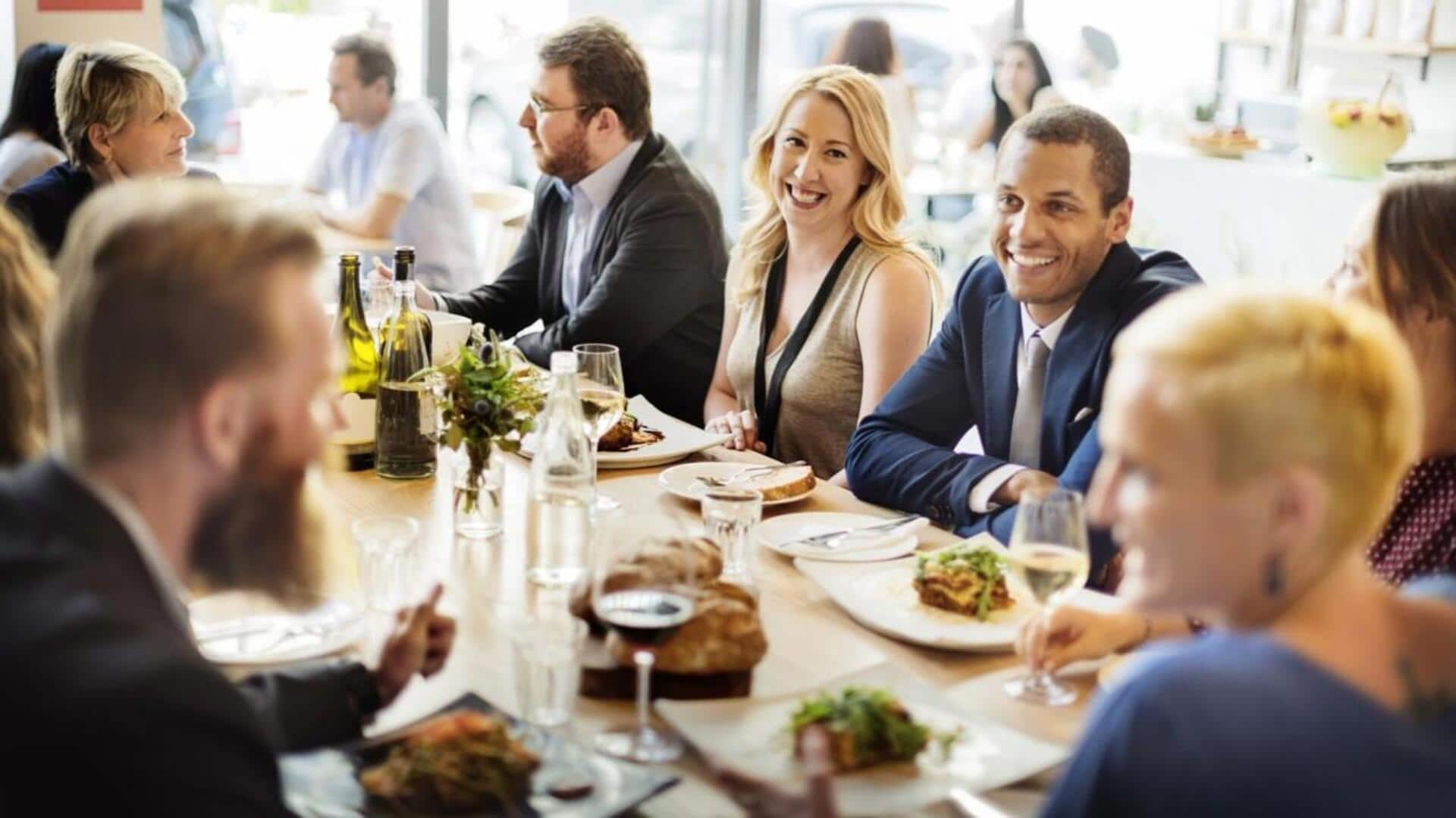
Business dining etiquette: 5 must-know tips
What's the story
Navigating business dining can be tricky, especially when it comes to etiquette. Knowing the dos and don'ts can leave a lasting impression on your colleagues and clients. Be it a formal dinner or a casual lunch meeting, following certain etiquette rules can make your interactions smoother and more professional. Here are five essential tips to help you sail through any business dining situation with grace.
Attire
Dress appropriately for the occasion
Choosing the right attire for a business meal is imperative. Always consider the venue and occasion before deciding what to wear. Formal settings may require a suit or business attire, while casual lunches may allow for smart casual wear. Dressing appropriately shows respect for your hosts and understanding of the event's nature, setting a positive tone for the meeting.
Timing
Be punctual and respectful of time
Arriving on time is a sign of professionalism and respect for others' schedules. Being late can disrupt plans and create unnecessary stress. If you're running late due to unforeseen circumstances, inform your host as soon as possible. During the meal, be mindful of time; don't linger too long if others have commitments afterward.
Manners
Master table manners
Proper table manners are essential in any business dining situation. Start by waiting for everyone to be seated before digging in, and use utensils from the outside in as courses are served. Keep elbows off the table, chew with your mouth closed, and avoid talking with food in your mouth.
Conversation
Engage in appropriate conversation
Choosing topics wisely during a business meal is key. Keep discussions professional, avoiding sensitive issues. Aim for light, inclusive subjects that everyone can contribute to. This not only makes the conversation enjoyable but also fosters a positive atmosphere. It ensures all guests feel comfortable and engaged, making the dining experience both pleasant and productive.
Gratitude
Show gratitude at the end
Expressing gratitude at the end of a meal is always a good practice, irrespective of who picked up the bill. A simple thank you can go a long way in showing appreciation for someone's hospitality or generosity. If appropriate, consider sending a follow-up email thanking them again after returning home or to work.